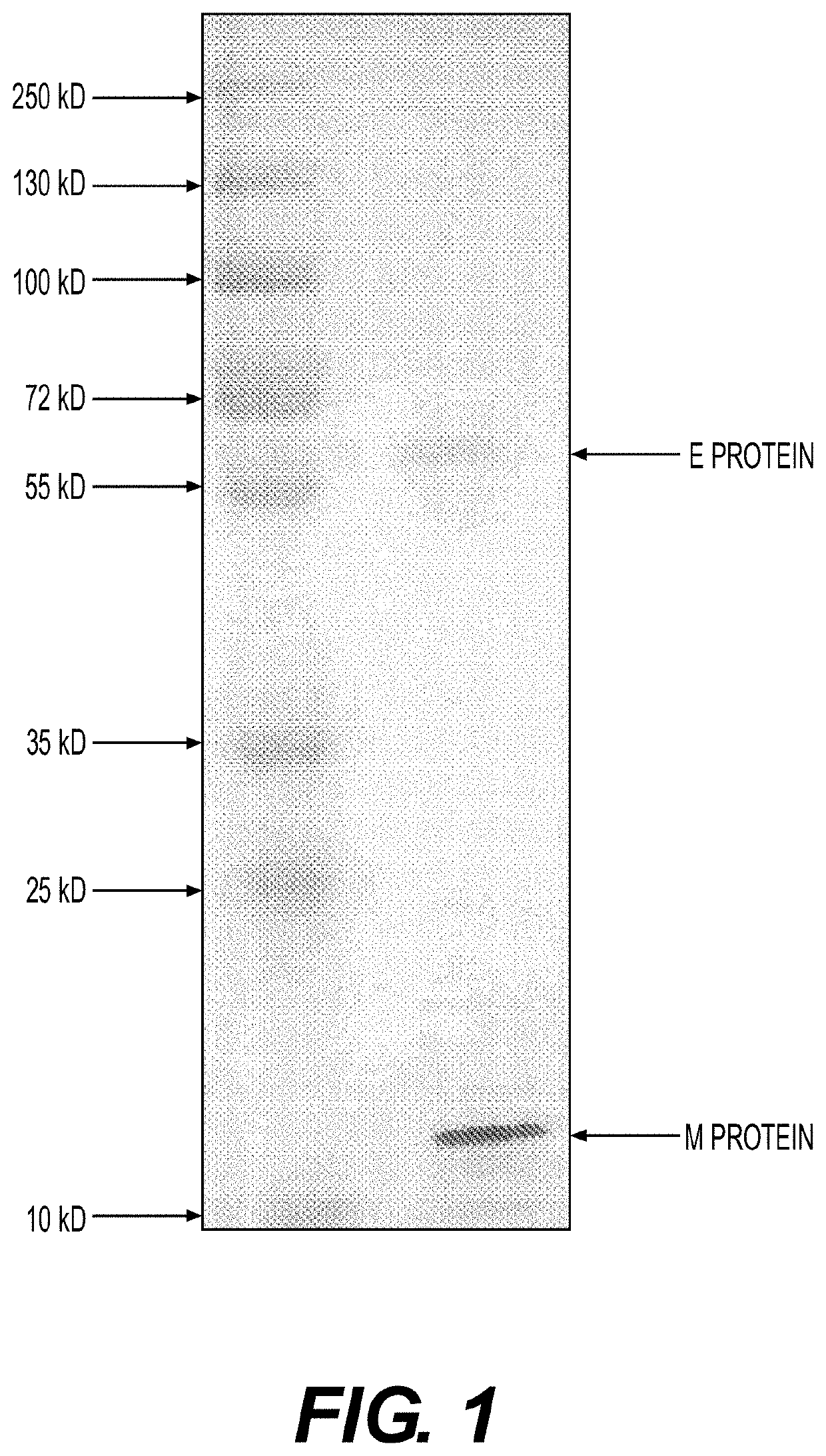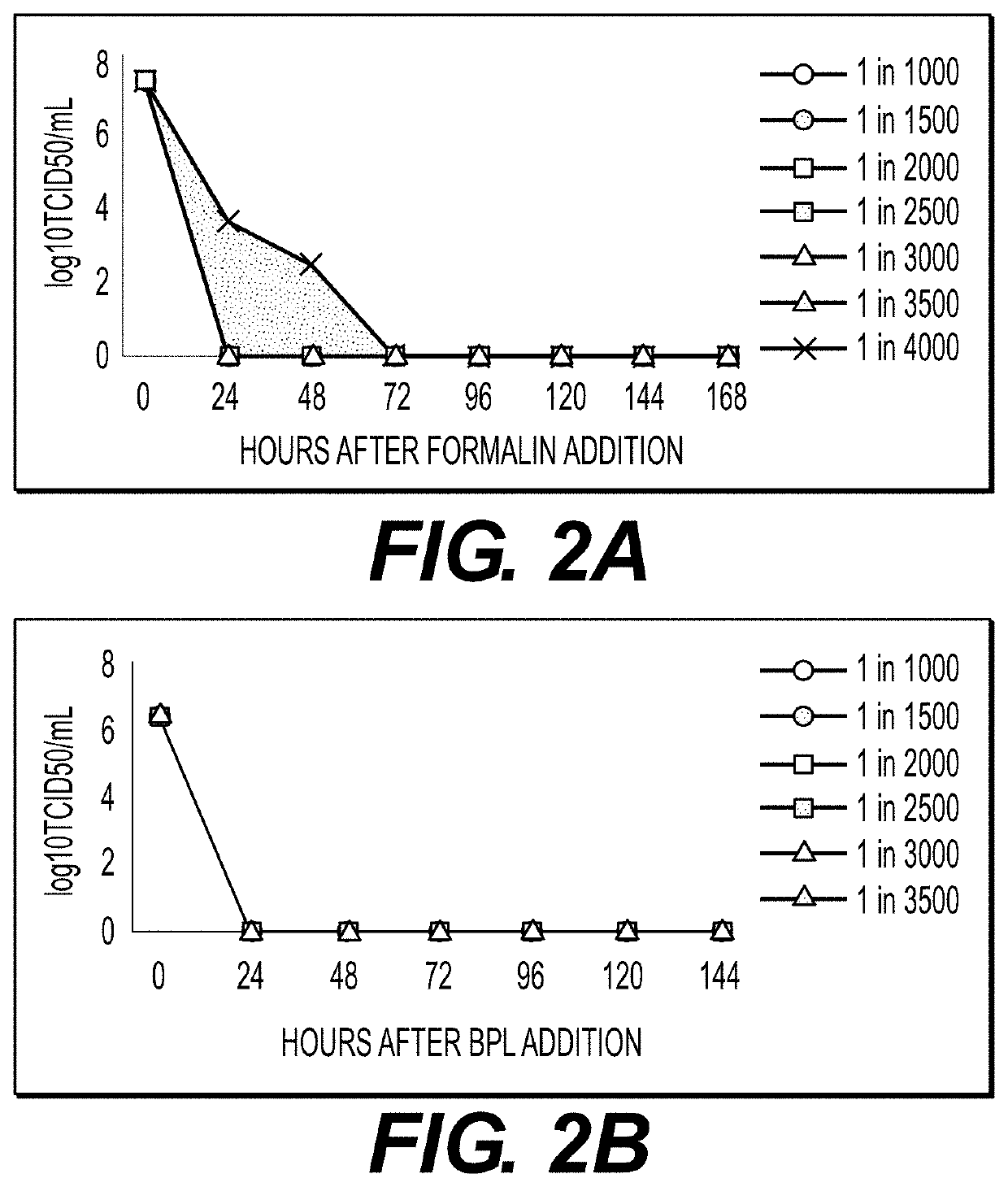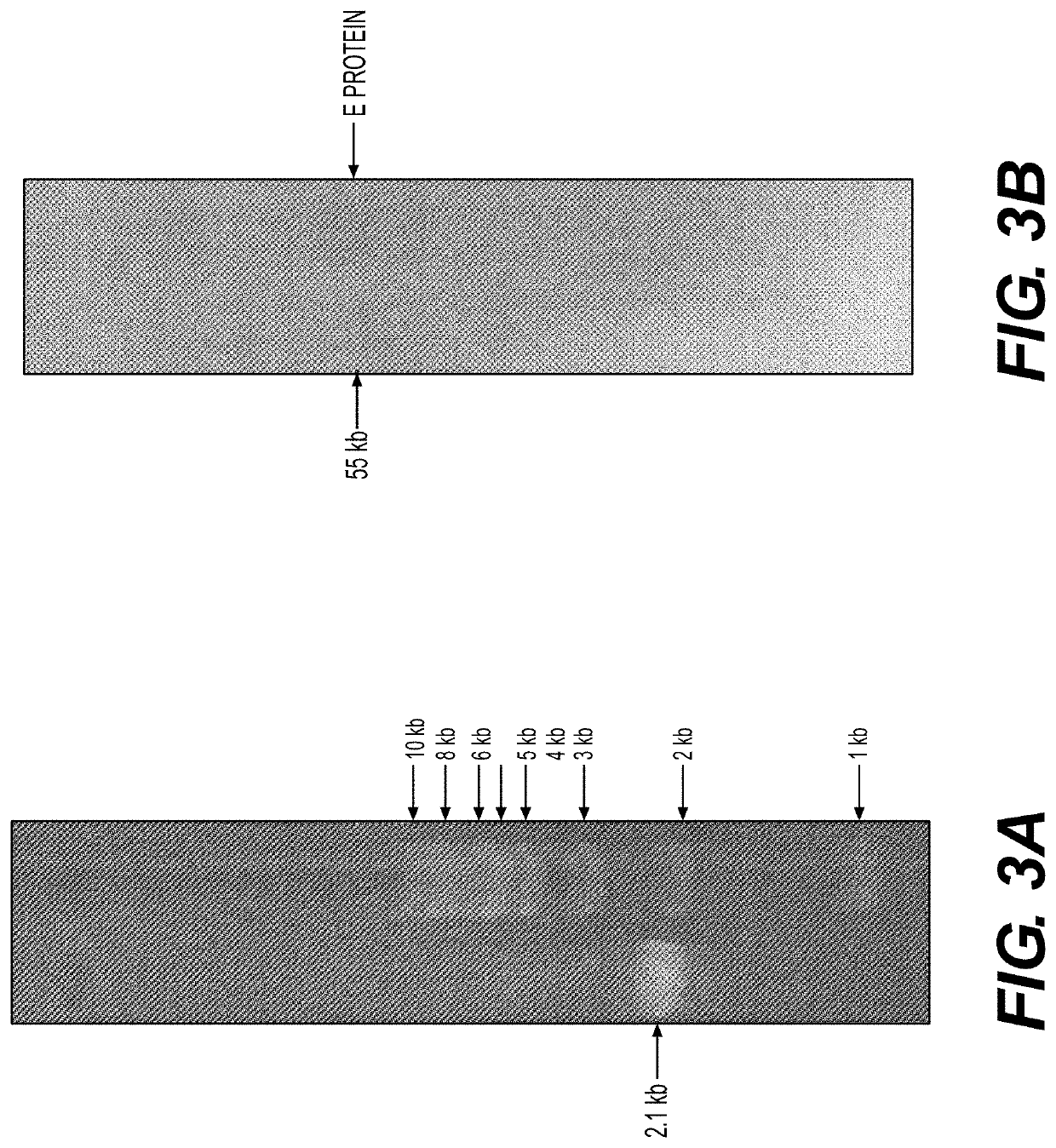Vaccine Compositions
a composition and zika virus technology, applied in the field of compositions of vaccines, can solve the problems of imposing a major risk of outbreak, no zika virus vaccine available in the world for prophylaxis or treatment, and high prevalence of i>, and achieve the effect of stable immunogenic compositions for prophylaxis and treatmen
- Summary
- Abstract
- Description
- Claims
- Application Information
AI Technical Summary
Benefits of technology
Problems solved by technology
Method used
Image
Examples
example 1
s Culture in Vero Cells
[0196]Vero cell line (ATCC No. CCL-81) was used as the cell substrate for culture of Zika virus.
[0197]Extensively characterized Vero cells obtained from BioReliance, USA was used in pilot scale production. Vero cells were grown in DMEM (Dulbecco's Modified Eagle Medium; Sigma-Aldrich Catalog #D5523 and used as per the manufacturer's instructions) or EMEM (Eagles Minimal Essential Medium) containing 5% fetal bovine serum (FBS) or New Born Calf Serum (NBCS) and incubated at 35° C. to 37° C. until reaching 80-100% confluence of the monolayer. Post-infection, the same medium containing 1% serum was used, or alternatively the virus was cultured in Vero cells adapted to serum free medium. Zika virus also could be grown in MRC-5 cell monolayer which were prepared in growth medium consisting of EMEM buffered to neutral pH with Hepes buffer with 5% serum and statically incubated at 35° C. to 37° C. for 6 to 8 days. Zika virus was cultured routinely in Vero cells. Zika ...
example 2
s Purification
[0198]For Zika virus culture at pilot scale, the virus culture was systematically scaled up from T-175 flasks to CS1 (cell stack 1), CS10 (cell stack 10) and CS40 (cell stack 40). Multiples of CS40 simultaneously infected with the virus at standardized Mol was used to scale up production. Use of multiples of CS40 enables quick and linear scale up to the desired volumes of production. The harvest volume from each CS40 was approximately 8-10 L. The virus was harvested at days 4-6 or whenever more than 90% CPE was achieved. Alternatively, disposable bioreactors under well standardized conditions of temperature 35° C. to 37° C., pH not less than 7.0, and optimally at pH 7.4, dissolved oxygen at 45 to 75 ppm, preferably 60 rpm and an agitation of 240 to 280 rpm and optimally controlled in-flow and out-flow rate optimized according to the scale of the culture volume from 1 L to 100 L was used to increase the cell density and virus harvest. The viral harvest was clarified eit...
example 3
s Inactivation
[0199]Zika virus sample was inactivated (killed) by various methods for use as vaccine antigens. Formalin inactivation was tested at various concentrations ranging from 1:1000 (formalin:virus, v / v) to 1:4000 (formalin:virus, v / v) at temperature 25±5° C., more specifically at 22° C. and the kinetics of virus inactivation was monitored every 24 hours for up to 10 days, and routinely the virus inactivation was carried out at 25±3° C., preferably at 22° C. for 7 days. The virus inactivation was effective at all concentrations from 1:1000 v / v formalin:virus, up to 1:3500 v / v formalin:virus, at the aforementioned temperatures and time intervals. A ratio of 1:4000 v / v of formalin:virus was effective in virus inactivation at higher temperatures up to 30 to 37° C. for 3 to 7 days. Formalin inactivation was effective at all the aforementioned ratios of formalin to virus at temperatures ranging from 2-8° C. when incubated for time intervals longer than 10 days. Hence formalin ina...
PUM
 Login to View More
Login to View More Abstract
Description
Claims
Application Information
 Login to View More
Login to View More - R&D
- Intellectual Property
- Life Sciences
- Materials
- Tech Scout
- Unparalleled Data Quality
- Higher Quality Content
- 60% Fewer Hallucinations
Browse by: Latest US Patents, China's latest patents, Technical Efficacy Thesaurus, Application Domain, Technology Topic, Popular Technical Reports.
© 2025 PatSnap. All rights reserved.Legal|Privacy policy|Modern Slavery Act Transparency Statement|Sitemap|About US| Contact US: help@patsnap.com



